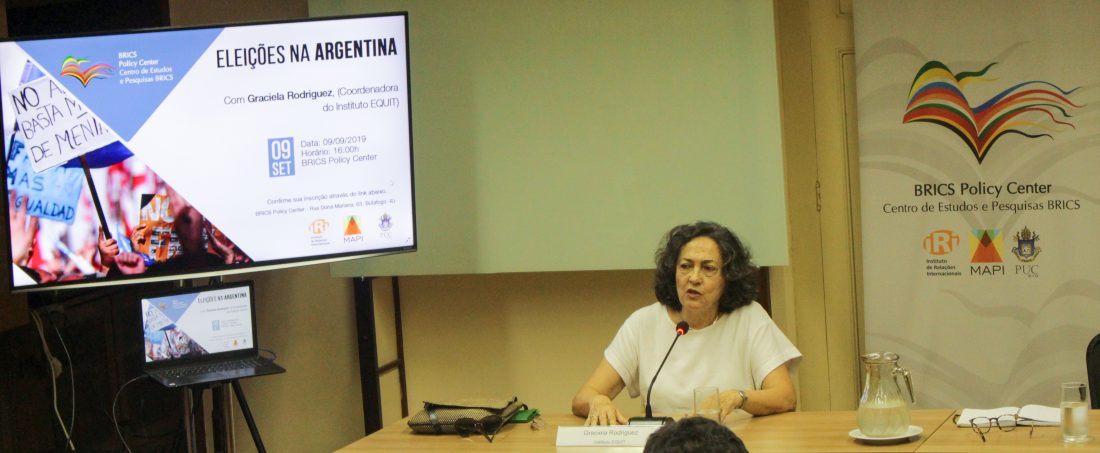
BPC organizes debate on Argentina’s election process
The elections in Argentina, scheduled for October of this year, were subject to debate openly organized by BRICS Policy Center on September 9th, 2019, ministered by Graciela Rodriguez, Argentinian sociologist, and coordinator of the EQUIT Institute, and mediated by Maria Elena Rodriguez, BPC’s researcher.
In the event, the lecturer presented a general panorama in which the country currently stands, taking into consideration two perspectives of analysis: the first one from the model of development adopted by Argentina and the second considering the issues around the Democracies in Latin America. Besides that, Rodriguez also discussed the deep economic crisis that the local economy encounters and its impacts ins the electoral process.
This year’s election dispute in Argentina is between the current president Mauricio Macri, who seeks his reelection representing the coalition Juntos por el Cambio, and Alberto Fernades, representing the coalition Frente de Todos, whose candidate for the vice-presidency is Cristina Kirchner. Roberto Lavagna, who is the ex-minister of Economy and representative of the coalition Consenso Federal, appears in third place of the vote intentions.
One of Macri’s govern sustainability and the main agenda of his political campaign in the 2015 elections was the deregulation of the economy and trade opening. However, the results of these liberalizing measures were not as promised and today reflect the country’s great indebtedness, the increase in social inequality, the increase in extreme poverty, and also the increase in inflation. According to her, this deregulation process, which culminated in an enormous loss in currency, is one of the crucial factors that explain the economic and political crisis.
The lecturer also discussed a few parallels with the Brazilian political situation, primarily regarding the debate about the role of digital media in the electoral process and its consequent regulation or deregulation.

